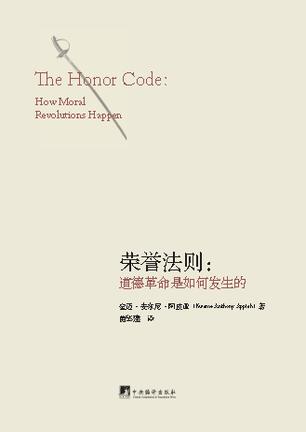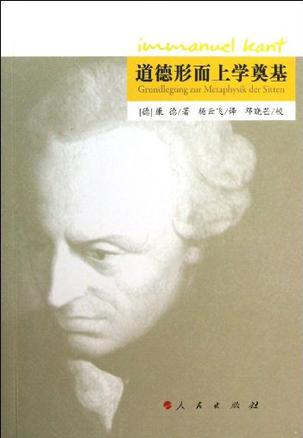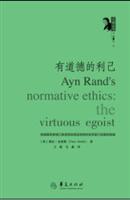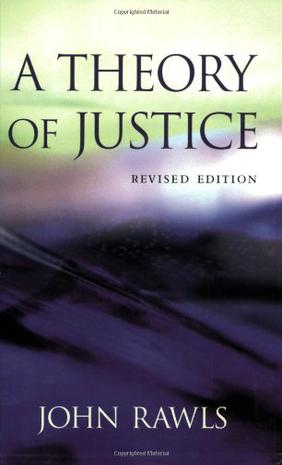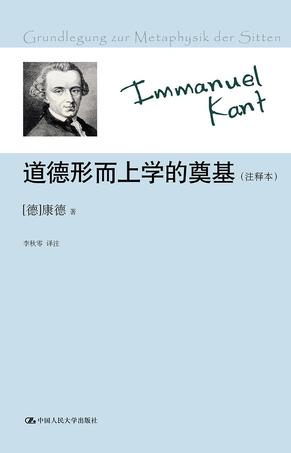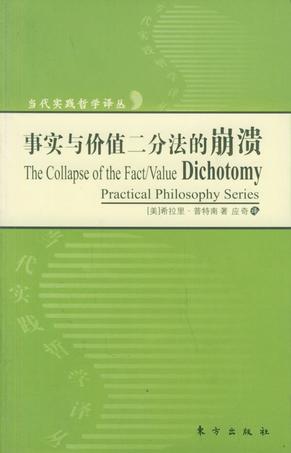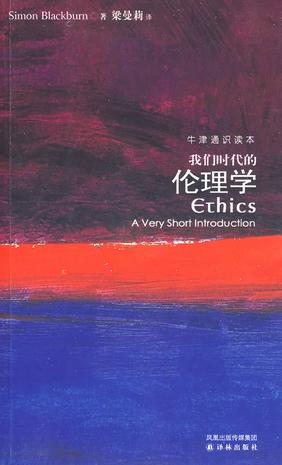欢迎来到相识电子书!
标签:伦理学
-
荣誉法则
《荣誉法则:道德革命是如何发生的》道德进步是如何发生的?社会是如何摒弃那些长期沿袭的不道德习俗的?在《荣誉法则:道德革命是如何发生的》一书里,奎迈·安东尼·阿皮亚探讨了一个长期受到忽视的改革动力。阿皮亚审视了以往道德革命的实例,并且对当代反对残忍习俗的运动作出描述,揭示了一个道理,即理性、道德或者宗教都不足以推进社会的改革。只有在不道德习俗与荣誉发生冲突之后,不道德习俗才会最终消亡。 阿皮亚在《荣誉法则:道德革命是如何发生的》的开始部分,以极其丰富的细节,描述了英国贵族阶层那个生死寻常的世界,长达几个世纪以来,英国贵族相互发出挑战,以决斗方式解决问题,阿皮亚回顾了那个世界里最后的重要决斗事件之一,即发生在当时的英国首相与一位性情古怪的伯爵之间的决斗,进而描述了一个处于剧烈变革之际的社会环境。把视线转向世界的另一面,阿皮亚描述了中国缠足习俗的终结过程。尽管中国皇朝试图禁止缠足习俗,但是,这一习俗依然盛行一千余年,不过,其终结只用了一代人的时间。阿皮亚生动地描述了这一充满纷乱的历史时期,论证了习俗的变迁并非源于自上而下的法令,而是源自古时已有的荣誉的力量。 阿皮亚以更为复杂的方式,展示了与荣誉相关的诸多思想,这些思想促成了历史上最重要的道德革命的发生;这些迅速形成的社会共识,曾经导致英帝国废止奴隶制度,呼唤普通男女积极投身废奴运动。然而,他的兴趣并不局限于对史实的描述。阿皮亚注意到,尽管受到宗教和道德的谴责,但是,在巴基斯坦等处仍然盛行可怕的“荣誉谋杀”习俗,终结这一可怕习俗的方法之一,就是唤醒集体性的荣誉感与耻辱感。 阿皮亚拥有讲述故事的天赋,以及哲学家的严谨态度,他以一种全新的方式探讨了与道德相关的问题。从满人废止中国古已有之的缠足习俗,到弗雷德里克·道格拉斯在伦敦与废奴运动领袖们的会晤,《荣誉法则》一书揭示了道德革命是如何获得成功的。 《荣誉法则:道德革命是如何发生的》是2010年《纽约时报》特别推荐的100本最佳图书之一,《泰晤士报·文学副刊》2010年度图书之一,《独立报》评选的2010年圣诞节图书之一,著名文化人梁文道两期“开卷八分钟”节目特别推荐此书。 -
On What Matters
On What Matters is a major work in moral philosophy. It is the long-awaited follow-up to Derek Parfit's 1984 book Reasons and Persons, one of the landmarks of twentieth-century philosophy. Parfit now presents a powerful new treatment of reasons, rationality, and normativity, and a critical examination of three systematic moral theories - Kant's ethics, contractualism, and consequentialism - leading to his own ground-breaking synthetic conclusion. Along the way he discusses a wide range of moral issues, such as the significance of consent, treating people as a means rather than an end, and free will and responsibility. On What Matters is already the most-discussed work in moral philosophy: its publication is likely to establish it as a modern classic which everyone working on moral philosophy will have to read, and which many others will turn to for stimulation and illumination. -
道德形而上学奠基
《道德形而上学基础》出版于1785年,是康德道德哲学最重要的著作之一,是在完成《纯粹理性批判》和《实践理性批判》之间写成的小册子。这部著作系统地展示了康德如何从一般道德理性知识中挖掘出道德性的最高原则,并对道德法则与自由的关系作了一个初步的清理。康德正是在本书中提出了“人是目的”这一命题,本书采取一种从下而上逐步提升的方式,或者说从分析上升到综合、从具体提高到抽象的方式,从日常现实的道德经验出发,是最通俗的一部。不仅展示了康德道德哲学的整个逻辑体系,而且揭示了这个道德体系的发生学,表明它的那些原理是怎么建立起来的。包含了康德道德哲学中许多难解之谜的谜底。 本书由杨云飞译,邓晓芒校订。 -
有道德的利己
本书是塔拉史密斯教授总结和解读安兰德伦理思想的作品,史密斯教授从理性、诚实、正义、诚信、独立、生产力、骄傲等众多方面揭示了兰德个人主义的哲学思想,对中国读者将会有启发意义。 -
维特根斯坦论伦理学与哲学
本书反映了维特根斯坦从重返剑桥直至去世期间(1929—1951)对伦理学、哲学性质以及美学、心理学和宗教信仰等人类基本问题的独特思考。书中收入的五篇文章,写作时间跨度大、涉及内容多,几乎涵盖了维特根斯坦所关心过的重要问题,从语言、逻辑和经验,到伦理学、美学和人类学,从哲学的性质到数学的基础,所有这些内容都是维特根斯坦重返哲学舞台后有过深入思考并认为已经或接近形成最后思想的主题范围。本书对于人们了解维特根斯坦后期思想的全貌有着重要意义。 -
利他主义的可能性
本书捍卫了这样一个主张:只有客观理由是可以接受的,而主观理由只有当它们能够从客观理由中推衍出来时才是正当的。作者认为,这种论证实际上确立了一个不同的结论:存在着与所有主观理由相对应的客观理由。这本身并不意味着所有理由都是客观的。依然存在着这样的可能性:产生其他主观理由的原初的主观理由保有某些独立的效力,而且并不完全从属于前者。 正如对于思想有理性的要求,对于行动同样有理性的要求,而利他主义就是其中一种要求。本书捍卫了一种伦理学观念,以及一种相应的人性观念,根据这种观念,某些重要的道德原则陈述了从利他主义的一个基本要求推衍出来的对于欲望和行动的理性条件。利他主义本身依赖于承认他人的实在性,依赖于把自己当作只是许多人当中的一个人的相应能力。 -
德性之后
第一章 一个令人忧虑的联想 第二章 当代道德分歧的性质和情感主义的主张 第三章 情感主义:社会内容和社会背景条件 第四章 先前的文化和启蒙运动对道德合理性的论证 第五章 论证道德合理性的启蒙运动为什么失败 第六章 启蒙运动论证失败的某些后果 第七章 “事实”、阐释与专门知识 第八章 社会科学中普遍概括的特征及其预言力量的缺乏 第九章 尼采还是亚里士多德 第十章 英雄社会中的德性 第十一章 雅典的德性 第十二章 亚里士多德的德性论 第十三章 中世纪的状况 第十四章 德性的性质 第十五章 德性、个人生活的整体和传统的概念 第十六章 从各类德性到德性及德性之后 第十七章 正义:变化中的德性概念 第十八章 德性之后:尼采或亚里士多德、托洛茨基和本尼迪克特 第十九章 第二版跋 -
伦理学原理
照我看来,在伦理学上,正像在一切哲学学科上一样,充满其历史的困难和争论主要是由于一个十分简单的原因,即由于不首先去精确发现你所希望回答的是什么问题,就试图作答。即使哲学家们在着手回答问题以前,力图发现他们正在探讨的是什么问题,我也不知道这一错误根源会消除到什么程度;因为分析和区别的工作常常是极其困难的:我们往往不能完成所必需的发现,尽管我们确实企图这样做。然而我好作这样的想法,即在许多情况下果决的尝试足以保证成功;因此,只要作了这种尝试,哲学上许多最触目的困难和争论也就消失了;无论如何,哲学家们似乎一般并不作这一尝试;而且,不管是否由于这种忽视,他们总是不断力求证明“是”或者“不”可以解答各问题;而对这类问题来说,这两种答案都不是正确的,因为事实上他们心里想的不是一个,而是几个问题,其中某些的正确答案是“不”,而另一些的是“是”。 我在本书中已力图将道德哲学家们通常自称从事解答的两类问题清楚地加以区分;但是正像我已证明的,他们几乎总是使二者不仅相互混淆,而且跟其他问题混淆起来。第一类问题可以用这样的形式来表达:哪种事物应该为它们本身而实存;第二类问题可以用这样的形式来表达:我们应该采取哪种行为?我已力求证明:当我们探讨一事物是否应该为它本身而实存,一事物是否就其本身而言是善的,或者是否具有内在价值的时候,我们关于该事物究竟探讨什么;当我们探讨我们是否应该采取某一行为,它是否是一正当行为或义务的时候,我们关于该行为究竟探讨什么。 -
A Theory of Justice
A Theory of Justice is a widely-read book of political and moral philosophy by John Rawls. It was originally published in 1971 and revised in both 1975 (for the translated editions) and 1999. In A Theory of Justice, Rawls attempts to solve the problem of distributive justice by utilising a variant of the familiar device of the social contract. The resultant theory is known as "Justice as Fairness", from which Rawls derives his two famous principles of justice: the liberty principle and the difference principle. [edit] Objective In A Theory of Justice Rawls argues for a principled reconciliation of liberty and equality. Central to this effort is an account of the circumstances of justice (inspired by David Hume), and a fair choice situation (closer in spirit to Kant) for parties facing such circumstances, and seeking principles of justice to guide their conduct. These parties face moderate scarcity, and they are neither naturally altruistic nor purely egoistic: they have ends they seek to advance, but desire to advance them through cooperation with others on mutually acceptable terms. Rawls offers a model of a fair choice situation (the original position with its veil of ignorance) within which parties would hypothetically choose mutually acceptable principles of justice. Under such constraints, Rawls believes that parties would find his favoured principles of justice to be especially attractive, winning out over varied alternatives, including utilitarian and libertarian accounts. [edit] The "original position" Main article: Original position Like Hobbes, Locke, Rousseau and Kant, Rawls belongs to the social contract tradition. However, Rawls' social contract takes a slightly different form from that of previous thinkers. Specifically, Rawls develops what he claims are principles of justice through the use of an entirely and deliberately artificial device he calls the Original position, in which everyone decides principles of justice from behind a veil of ignorance. This "veil" is one that essentially blinds people to all facts about themselves that might cloud what notion of justice is developed. "no one knows his place in society, his class position or social status, nor does anyone know his fortune in the distribution of natural assets and abilities, his intelligence, strength, and the like. I shall even assume that the parties do not know their conceptions of the good or their special psychological propensities. The principles of justice are chosen behind a veil of ignorance." According to Rawls, ignorance of these details about oneself will lead to principles which are fair to all. If an individual does not know how he will end up in his own conceived society, he is likely not going to privilege any one class of people, but rather develop a scheme of justice that treats all fairly. In particular, Rawls claims that those in the Original Position would all adopt a maximin strategy which would maximise the position of the least well-off. They are the principles that rational and free persons concerned to further their own interests would accept in an initial position of equality as defining the fundamentals of the terms of their association [Rawls, p 11] It is important to keep in mind that the agreement that stems from the original position is both hypothetical and nonhistorical. It is hypothetical in the sense that the principles to be derived are what the parties would, under certain legitimating conditions, agree to, not what they have agreed to. In other words, Rawls seeks to persuade us through argument that the principles of justice that he derives are in fact what we would agree upon if we were in the hypothetical situation of the original position and that those principles have moral weight as a result of that. It is nonhistorical in the sense that it is not supposed that the agreement has ever, or indeed could actually be entered into as a matter of fact. Rawls claims that the parties in the original position would adopt two such principles, which would then govern the assignment of rights and duties and regulate the distribution of social and economic advantages across society. [edit] The First Principle of Justice “ First: each person is to have an equal right to the most extensive scheme of equal basic liberties compatible with a similar scheme of liberties for others.[1] ” The basic liberties of citizens are, roughly speaking, political liberty (i.e., to vote and run for office); freedom of speech and assembly, liberty of conscience and freedom of thought, freedom of the person along with the right to hold (personal) property; and freedom from arbitrary arrest. It is a matter of some debate whether freedom of contract can be inferred as being included among these basic liberties. The first principle is more or less absolute, and may not be violated, even for the sake of the second principle, above an unspecified but low level of economic development (i.e. the first principle is, under most conditions, lexically prior to the second principle). However, because various basic liberties may conflict, it may be necessary to trade them off against each other for the sake of obtaining the largest possible system of rights. There is thus some uncertainty as to exactly what is mandated by the principle, and it is possible that a plurality of sets of liberties satisfy its requirements. [edit] The Second Principle of Justice Social and economic inequalities are to be arranged so that (Rawls, 1971, p.303): a) they are to be of the greatest benefit to the least-advantaged members of society (the difference principle). b) offices and positions must be open to everyone under conditions of (fair equality of opportunity) Rawls' claim in b) is that departures from equality of a list of what he calls primary goods – 'things which a rational man wants whatever else he wants' [Rawls, 1971, pg. 92] – are justified only to the extent that they improve the lot of those who are worst-off under that distribution in comparison with the previous, equal, distribution. His position is at least in some sense egalitarian, with a proviso that equality is not to be achieved by worsening the position of the least advantaged. An important consequence here, however, is that inequalities can actually be just on Rawls's view, as long as they are to the benefit of the least well off. His argument for this position rests heavily on the claim that morally arbitrary factors (for example, the family we're born into) shouldn't determine our life chances or opportunities. Rawls is also keying on an intuition that we do not deserve inborn talents, thus we are not entitled to all the benefits we could possibly receive from them, meaning that at least one of the criteria which could provide an alternative to equality in assessing the justice of distributions is eliminated. The stipulation in a) is prior to that in b) and requires more than meritocracy. 'Fair equality of opportunity' requires not merely that offices and positions are distributed on the basis of merit, but that all have reasonable opportunity to acquire the skills on the basis of which merit is assessed. It is often thought that this stipulation, and even the first principle of justice, may require greater equality than the difference principle, because large social and economic inequalities, even when they are to the advantage of the worst-off, will tend to seriously undermine the value of the political liberties and any measures towards fair equality of opportunity. [edit] Relationship to Rawls's later work Although Rawls never retreated from the core argument of A Theory of Justice, he modified his theory substantially in subsequent works. The discussion in this entry is limited to his views as they stood in A Theory of Justice, which stands on its own as an important (if controversial and much criticized) work of political philosophy. His subsequent work is discussed in the entry titled John Rawls. Of particular note is his work Justice as Fairness: A Restatement (2001), in which he clarified and re-organised much of the argument of A Theory of Justice. [edit] Critics of A Theory of Justice A Theory of Justice made a significant contribution to re-establishing interest in political philosophy, and so it has served as the basis for much of the debate since, meaning that it has been much criticized. In particular, Rawls's colleague at Harvard Robert Nozick wrote a defence of libertarian justice in the aftermath of A Theory of Justice, called Anarchy, State, and Utopia, which was critical of Rawls's work. Because it is, in part, a reaction to A Theory of Justice, the two books are now often read together. Another colleague of Rawls's from Harvard, Michael Walzer, wrote a defence of communitarian political philosophy, entitled "Spheres of Justice," as a result of a seminar he co-taught with Nozick. Robert Paul Wolff wrote Understanding Rawls: A Critique and Reconstruction of A Theory of Justice immediately following the publication of A Theory of Justice, which criticized Rawls from a roughly Marxist perspective. Wolff argues in this work that Rawls's theory is an apology for the status quo insofar as it constructs justice from existing practice and forecloses the possibility that there may be problems of injustice embedded in capitalist social relations, private property or the market economy. Feminist critics of Rawls largely focused on the extent to which Rawls's theory could account for, at all, injustices and hierarchies embedded in familial relations. Rawls argued that justice ought only to apply to the "basic structure of society" for instance, and feminists rallying around the theme of "the personal is political" took Rawls to task for failing to account for injustices found in patriarchal social relations and the sexual division of labor. The assumptions of the original position, and in particular, the use of maximin reasoning, have also been criticized, with the implication either that Rawls designed the original position to derive the two principles, or that an original position more faithful to its initial purpose would not lead to his favored principles. However Rawls does not deny this, he uses the original position in conjunction with an intuitive argument to justify his claim of justice as fairness. Some critics allege that Rawls' argument is weakened in failing to denote healthcare as a primary good. Proponents respond by asserting that affordable and accessible healthcare arises as an inevitable result of the benefits attained by following through with the Original Position. One of the most influential recent criticisms of Rawls' theory has come from the philosopher G.A. Cohen, in a series of influential papers that culminate in his 2000 book If You're An Egalitarian, How Come You're So Rich? Cohen's criticisms are levelled against Rawls' avowal of inequality under the difference principle, against his application of the principle only to social institutions, and against Rawlsian fetishism with primary goods (the metric which Rawls chooses as his currency of equality). -
实践伦理学
《实践伦理学》是对当今世界日益广泛和深入的实践伦理学问题作了较为系统和深入研究的有相对完备体系的实践伦理学著作。我国步入现代化过程的社会生活实践发展日新月异,各种社会领域不断涌现的前所未有的道德境遇要求国人具备根据一定的伦理知识积累和伦理方法论分析能力在新的实践境遇中做出正确的道德选择或道德决定的品性。 -
道德形而上学的奠基
由中国人民大学哲学院教授李秋零主编、主译的《康德著作全集》(9卷本),以普鲁士王家科学院本(通称“科学院版”)为底本,全部直接从德文译出,原文为拉丁文的则直接从拉丁文译出。科学院版《全集》包含了康德生前公开发表的所有著作和文章,并且经过了德文编辑者的详细校勘。中译者在翻译过程中参考了已有的各种译本,同时也对一些名词、术语提出了自己的独到见解。中译者以其在西方哲学、宗教学、语言学方面的深厚学养,以及十年如一日的苦心孤诣,为我们提供了一个可信、可读的康德著作文本,对康德翻译与研究作出了不朽的贡献。 -
道德运气
本书是伯纳德·威廉斯的代表作,收录了他1973-1980年间所写的重要哲学论文。 在书中,威廉斯对那种以功利主义和康德伦理学为核心的、不偏不倚的道德理论提出了更为具体的批评;同时,他试图利用“内在理由”和“实践必然性”等概念来阐明伦理生活的本质和复杂性。威廉斯对功利主义在道德和哲学上的局限、相对主义、道德冲突和理性选择等问题的论述,充分展示了20世纪下半叶以来西方道德哲学发展的广度和深度,同时亦对这种发展贡献卓著。 本书拥有广泛的读者群,自1981年以来重版了十数次。 前言 致谢 一、个人、品格与道德 二、道德运气 三、功利主义与道德上的自我沉溺 四、政治与道德品格 五、价值的冲突 六、公正作为一种美德 七、罗尔斯与帕斯卡之赌 八、内在理由与外在理由 九、“应当”与道德义务 十、实践必然性 十一、相对主义中的真理 十二、维特根斯坦与唯心论 十三、他时、他地、他人 附录:伯纳德·威廉斯的哲学著作 -
事实与价值二分法的崩溃
事实与价值的二分法是现代道德哲学和政治哲学的根本前提,对这一前提的批判是当代实践哲学最富有挑战性的主题。美国哲学家普特南是这一思潮中颇有深度和影响的人物。本书立足与实用主义转向后的基本立场,从知识论、伦理学和科学哲学的角度对事实与价值的二分法展开了猛烈的批判,堪称20世纪70年代以后兴起的新实用主义思潮的简要总结。 -
我们时代的伦理学
我们作为正人君子的自我形象总要接受怀疑主义、相对主义、虚无主义的拷问。许多人忧心忡忡,担心在一个诸神退隐的世界中,科学已揭下我们的面具,使我们显形为由基因所命定的生物:狭隘自私、党同伐异,或争强好胜、咄咄逼人。作者在本书中探讨了出生、死亡、幸福、欲望、自由等主要伦理问题,努力想说明人应该如何思考生活的意义;并提醒我们,应该对那些经常主导着遒德论辩、事实上不过是诱人噱头的绝对原则保持怀疑。 -
尼各马科伦理学
《亚里士多德全集》(中文版10卷本)1997年出齐后,获得了第四届全国图书将(1999年)、国家社会科学基金项目优秀成果一将(1999年)等多项大奖。为了读者使用方便,也为了把自己研究西方哲学尤其是古希腊哲学的心惊传达给读者,作者又编选了带有注释的《亚里士多德选集》。几年来,不断有读者尤其是大学生和研究生反映需要亚里士多德著作的单行本。为了满足这些读者的需要,作者将亚里士多德最具影响的著作以单行本的形式出版。单行本的译文与《亚里士多德全集》大体一致。个别术语和人名的改动,是苗力田先生在全集重印和做电子版时亲自订正的。单行本的注释与命令保持一致。全集的脚注中所引证的希腊语词是按照国家颁布的《汉语拼音方案》的字母表对应拼写的。对西方哲学名著的译介和研究是一项没有止境的事业。准确、完美的译文,深入、详尽的注释,以至创造性的阐释和发展,是保能接近而难以完全达到的理想境界。不断接近这一境界,既有赖于学术界的努力,也需要出版界的推动。 -
道德形而上学原理
《道德形而上学原理》是关于伦理道德方面的一本经典。虽然它的篇幅不长,但集中论述了德性是人的意志的道德力量而具有自主性的思想,是康德德性论的代表作,对西方的伦理思想产生过极其深刻的影响。 -
伦理学是什么
《伦理学是什么》是为所有关注“伦理学是什么”、愿意反省道德问题的读者写的,它注意了两个方面的内容,一是介绍知识:即介绍了伦理学学科的基本概念和主要原理、以及中外哲学史上一些重要的伦理学流派和哲学家的观点;二是分析实例:其中包括对一些最近现实生活中发生的材料和例证进行分析,这些分析也融人了我近几年讲授“伦理学导论”和“应用伦理学概论”课程中的一些经验和体会。 -
论道德原理·论人类理智
简介: 大卫·休谟是英国哲学家、历史学家、经济学家,被视为苏格兰启蒙运动及西方哲学历史中最重要的人物之一。《论道德原理/论人类理智》是休谟哲学思想的结晶,对当代西方哲学产生了巨大的影响。本书完整地论述了关于道德思想与人类认识之间的关系。如今,在当代思想界的最新成就的基础上,让我们用现代的眼光来重新整理历代经典,更能体验到人类思想发展的基本脉络,有助于我们更好地对人类文明的反思。 导读: 做一个哲学家吧,不过,在你的全部哲学中,你仍然要做一个人。 ——大卫·休谟 休谟对于他的好友亚当·斯密在道德哲学和经济学上的影响,是显而易见的,他也将康德从独断论的睡梦中唤醒。 ——边沁 《论道德原理》是我所有哲学著作中最好的一本,无论是在哲学思想和文学风格上皆然。 ——大卫·休谟 柏拉图和笛卡儿超越怀疑的梦想已经一去不复返了。取而代之的是需要学会与怀疑共处,但并不被怀疑所左右。休谟的独特天才就在于向我们显示他如何做到这一点。 ——朱利安·巴吉尼 毁灭整个世界也不愿意碰伤我的指头并不和理性相违背。换句话说,让我们从毁灭整个世界的想法退却的不是理性的讨论,而是人类的情感! ——大卫·休谟 休谟主张我们应该追随自然而避免思想的焦虑。如同那希腊化时代的哲学家一样,休谟认为我们应该先了解我们自己所处的自然本质,而不是贸然进行任何哲学思考的冒险。 ——特伦斯·佩内休姆 我在构思《相对论》时便受到了休谟的启发。 ——阿尔伯特·爱因斯坦 -
本然的观点
人的自我具有一种分裂的本性,它能超越自己的经验即从客观的观点来思考世界,也能从自身所处的特殊视角即从主观的观点来看待世界。本书旨在处理主观性和客观性的关系问题。作者认为,解决此问题的关键在于如何看待客观性。客观性无法对世界作出令人满意的解释,但解决的方法不是禁止客观化,而是求得客观性与不可还原的主观性的协调,即以本然的观点看世界。作者探讨了这个问题在身心关系、知识与怀疑、思想与实在及道德哲学等方面的表现。作者处理这一问题的独特方法,为哲学探究开辟了一条全新的途径。在形而上学、认识论及价值哲学等领域,本书都是一部极为重要的著作。
热门标签
下载排行榜
- 1 梦的解析:最佳译本
- 2 李鸿章全传
- 3 淡定的智慧
- 4 心理操控术
- 5 哈佛口才课
- 6 俗世奇人
- 7 日瓦戈医生
- 8 笑死你的逻辑学
- 9 历史老师没教过的历史
- 10 1分钟和陌生人成为朋友

